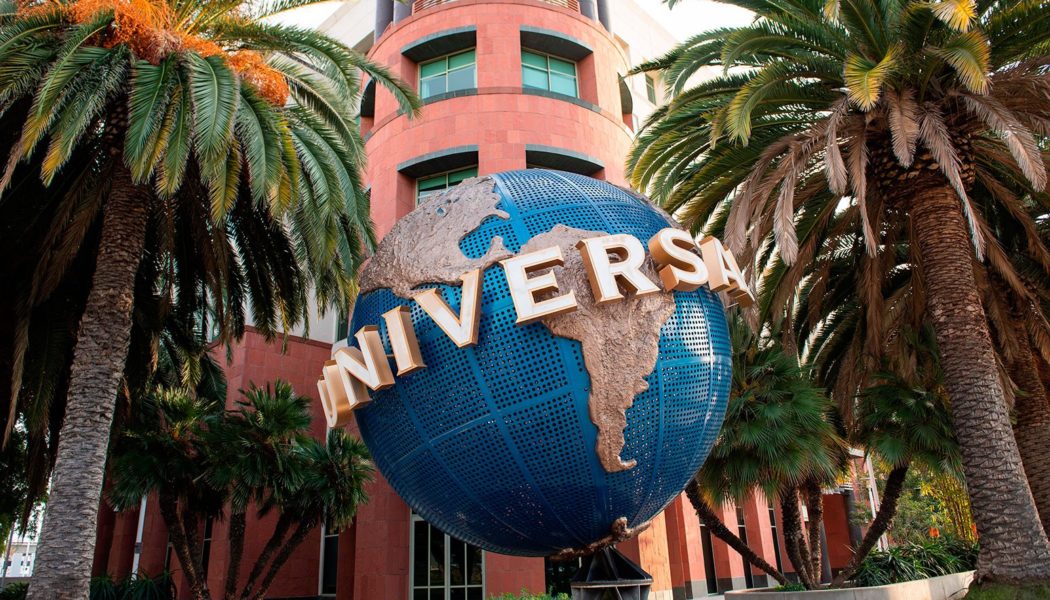Asking around, one name keeps popping up: Liberty Media, the majority owner of satellite radio provider SiriusXM — itself owner of music streamer Pandora — and 33% of concert promoter Live Nation. Liberty also owns 5% of terrestrial broadcaster iHeartMedia and tried to buy 40% while iHeartMedia was in Chapter 11 bankruptcy. And despite concerns a larger stake would result in anticompetitive behavior, the Department of Justice approved Liberty’s request to increase its stake beyond 5% in July 2020. Liberty Media could take a piece of UMG and add intellectual property to a “full stack,” vertically-integrated media company. On paper at least, Universal could woo artists by offering exposure on Liberty-owned broadcasters and with concerts on Live Nation-run tours and festivals.
It wouldn’t be the first time a broadcast company owned a record label: CBS owned a group of record labels, including Columbia Records, from 1938 until 1988, when it sold them to Sony. In the 2000s, Live Nation dabbled with a short-lived record label — it signed Zac Brown Band in 2008, but closed down soon after and Brown signed with Atlantic Records — and inked deals with Jay-Z, Madonna, Shakira and Nickelback that gave it a share of the artists’ revenue streams such as recorded music, merchandise and licensing. But never has an entertainment company stacked up a label, publisher, promoter and three broadcast formats (terrestrial, online and satellite) under one roof.
“In a lot of businesses where Malone has exposure, vertical integration doesn’t really make sense,” says Citi analyst Jason Bazinet. “But it does in the music space.” A business model that provides a movie channel to one company’s cable customers isn’t sensible, he argues. Liberty-owned Starz Encore, a competitor to Showtime and HBO, wanted the widest distribution possible to reach the most potential subscribers. But with a stake in UMG, Liberty would own a piece of intellectual property that can add value to its entertainment properties. At the very least, Liberty would come away with greater knowledge of the recording and publishing industries.
Some sources say that since the music asset class has become attractive to institutional investors, PIMCO — the huge financial investment firm more formerly known as Pacific Investment Management Co. — has been investigating ways to get a piece of the action; it joined with Liberty Media and Franklin Resource in the bid for iHeartMedia. With well over $1 trillion under investment, it certainly has the deep pockets to invest in the UMG deal, even at $4 billion for a 10% piece. Meanwhile, other executives speculate that such investment firms as Fidelity Investments or T. Rowe Price might be considering the UMG investment because both are known for taking positions in companies that are planning to or on the verge of going.
Other possible investors have been in the market for music in the past. Institutional investors TPG, Dragoneer and Goldman Sachs bought $1 billion in Spotify’s convertible debt just two years before its direct listing on the New York Stock Exchange in 2018. The Sony/ATV-led consortium that acquired EMI Music Publishing from Citi in 2012 included Mubadala Capital, the UAE sovereign wealth fund. One party to show interest in music in the past is Ron Burkle’s Yucaipa Companies, which tried to buy Warner Music Group in 2011 and EMI Music in 2011 (Universal Music Group had the winning bid). Platinum Equity, led by Tom Gores, and the Gores Group, also bid on WMG, which was ultimately acquired by current owner Access Industries.
Vivendi sold 20% of UMG to a consortium led by Chinese tech giant Tencent last year and plans to keep 10% for at least two years, the company said Tuesday. It will float 60% of UMG shares on the Euronext Amsterdam stock exchange by Sept. 27. —Glenn Peoples
FTC Knocks Back Latest Call for Investigation of Ticketmaster
It’s been more than a decade since Live Nation acquired Ticketmaster and became the world’s largest concert company, but Congressman Bill Pascrell (D-NJ) has refused to veer from his publicly-stated goal of splitting the company up. Since the deal was approved in 2010, Pascrell has made five separate calls for the company and the merger to be investigated by the Department of Justice and the Federal Trade Commission, so far without success.
In 2020, the FTC responded by commissioning a report on the ticketing industry that called for more transparency from Ticketmaster, but ultimately found that the ticket resale industry was most to blame for the majority of consumer complaints in ticketing. The report also did not endorse a key provision of the BOSS Act, a ticketing reform package Pascrell had been trying to pass since 2009. That provision would have banned companies like Ticketmaster from forcing consumers to use digital tickets, which Pascrell described as an attempt by Ticketmaster to choke out competitors; conversely, the report indicated digital-only tickets could be useful for fighting scalpers on high demand shows.
Michael Brochstein/SOPA Images/Shutterstock
U.S. Representative Bill Pascrell
Now, Pascrell is trying again. Hoping to have better luck with the Biden administration, he sent a letter on April 19 to acting FTC chair Rebecca Slaughter calling for Live Nation to be investigated for potentially “unfair, deceptive and anticompetitive practices” as well as efforts to attempt to “choke off competition” during the pandemic.
Slaughter’s response was not what many expected. While she acknowledged Pascrell’s concerns and outlined steps the agency had taken recently against illegal resale outfits, she had her own request for Pascrell: for Congress to act quickly to increase the FTC’s budget and restore the agency’s power after it was stripped away by the Supreme Court.
“I would be remiss if I did not note two acute FTC-specific challenges in carrying out the agency’s mission,” Slaughter wrote in a letter dated May 13. The first challenge was that “FTC funding has not kept up with the increasing demand on our competition and consumer protection work.” The agency’s $330 million 2021 budget was about $800,000 less than 2020, according to congressional records.
The second issue was much more serious: on April 22, the U.S. Supreme Court unanimously ruled that the 40-year-old law that created the FTC did not give it the power to force companies to pay restitution to consumers for unfair or deceptive acts or practices.
“I look forward to working with Congress to ensure that the Commission has the resources and tools it needs to protect consumers and promote competition, including by pursuing appropriate enforcement action to address ongoing concerns in the event ticketing industry,” Slaughter wrote.
While Pascrell’s letter was sent prior to the April 22 ruling, a source at Live Nation who did not wish to be identified said Pascrell’s constant calls for investigation ignore the fact that Live Nation is operating under a DOJ consent decree, which essentially is a state of non-stop government monitoring and investigation. The consent decree, instituted in 2010 and extended until 2025, significantly limits what Live Nation can be investigated for, namely violations of competitive ticketing practices, not scalping or digital ticketing.
“Without a legislative overhaul of the ticketing business, Pascrell’s non-stop calls for investigations are pointless because the agencies he’s addressing don’t actually have the power to do what he is asking them to do,” the source tells Billboard. —Dave Brooks
LiveXLive’s Hedge Fund Problem
LiveXLive chairman/CEO Rob Ellin, a 30-year veteran of the investment and turnaround industry, is no stranger to lawsuits. But a recent legal dispute by a former executive at his company has raised new questions about the relationship between the hedge funds Ellin operates and LiveXLive.
On its face, Schuyler Hoversten’s $2 million lawsuit against the West Hollywood company isn’t that different from the half-dozen lawsuits Ellin already faces in California and New York, for allegedly breaching agreements to pay various former employees and debtors with shares of LiveXLive that were never delivered.
Isaac Brekken/Getty Images for LiveXLive
LiveXLive CEO Rob Ellin speaks during the LiveXLive CES afterparty at CATCH on Jan. 8, 2019 in Las Vegas.
But Hoversten’s suit is the first to take on Ellin’s Trinad Capital Master Fund, a Cayman Islands hedge fund controlled by Ellin with the purpose of financing ventures like LiveXLive. Trinad is marketed to investors as a diversified fund that focuses on small publicly-traded companies, according to its prospectus, reporting $46 million in assets under management in 2021, according to public filings.
According to Hoversten’s complaint, investing in Trinad seemed like a good bet: Trinad’s financial prospectus showed a 109% annualized return rate. And while Ellin usually required a $1 million investment to buy into the exclusive fund, he allowed Hoversten to buy in at $750,000, according to emails introduced as exhibits in the case. But not long after wiring the money, Hoversten claims he became concerned about a lack of transparency at Trinad. On Oct. 2, Hoversten emailed Ellin asking, “How much exposure does the fund have to LiveXLive?”
Ellin responded telling Schuyler his invitation to join the fund should be viewed as “a gift” and told Hoversten to focus on “getting deals done” over the next six months. While Trinad did own 20% of LiveXLive’s stock, Ellin promised Hoversten that the LiveXLive investment represented a small fraction of the fund’s holdings, and said that all investments were capped at a 15% position, Hoversten’s attorney Ethan Brown writes in the arbitration claim. This would turn out to not be the case, according to the lawsuit.
In January 2019, Hoversten received an annual statement on his investment showing a 13% loss for the quarter and a 3.5% gain for the year. When he protested, Ellin sent profanity-laced responses accusing Hoversten of stupidity and ungratefulness, according to court documents. When Hoversten tried to liquidate his position in Trinad in August 2019, Ellin eventually admitted the fund was “invested in many positions but LIVX heavily weighted.” Months later, he told Hoversten to expect heavy losses in his investment if he pulled out; at the time, January 2020, Hoversten had already seen his investment lose $230,000.
Hoversten’s attorneys would go on to find out that as much as 90% of Ellin’s investment was used to buy up LiveXLive stock, according to the lawsuit. When Hoversten asked why his portfolio had lost money while its main asset, shares of LiveXLive, were up more than 300% since his initial investment, Ellin responded, “We don’t provide transparency to anyone!” and later told Hoversten to “lose my # forever.”
Hoversten’s lawyers claim “Ellin benefitted from the Fund’s heavily weighted asset concentration in LiveXLive,” and contend his role as chairman and chief executive is “in substantial part due to the Fund’s holdings of LiveXLive stock.” They’re asking for $2 million in damages and lost profits. Ellin did not respond to a request for comment. —Dave Brooks










